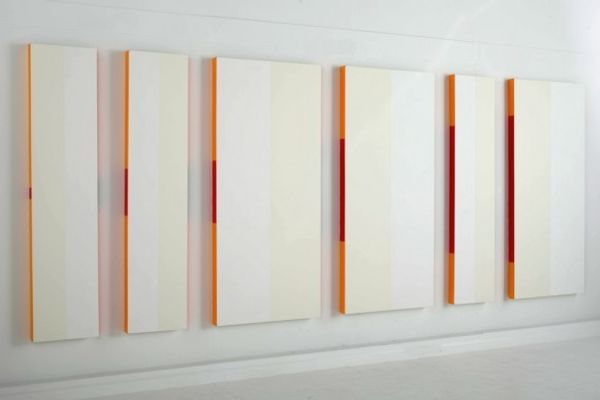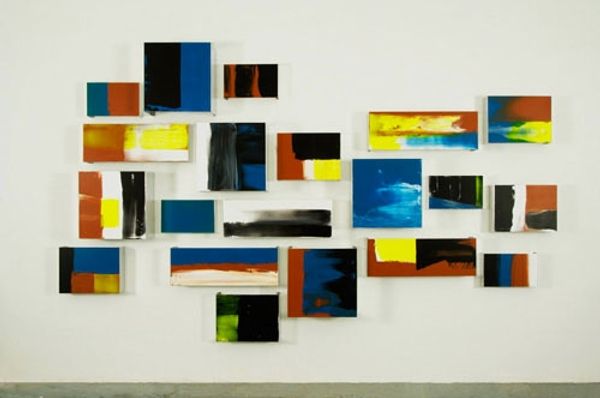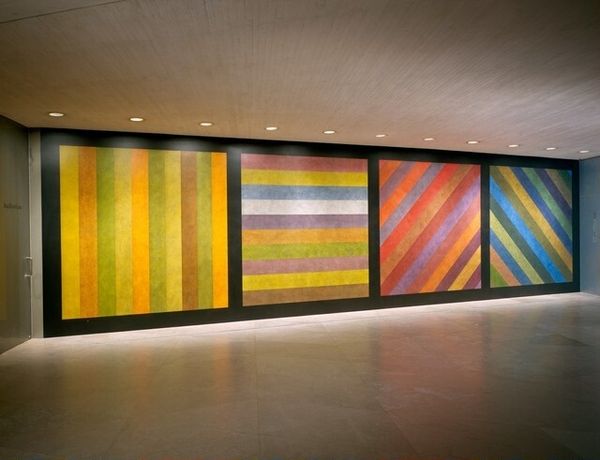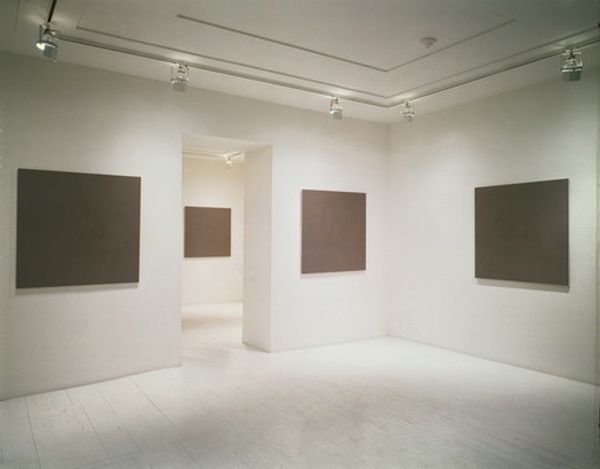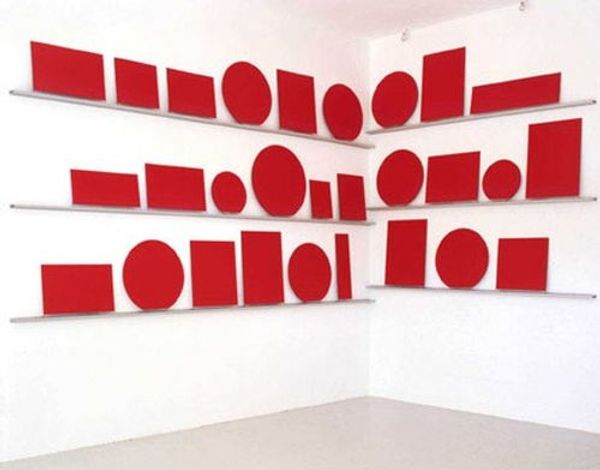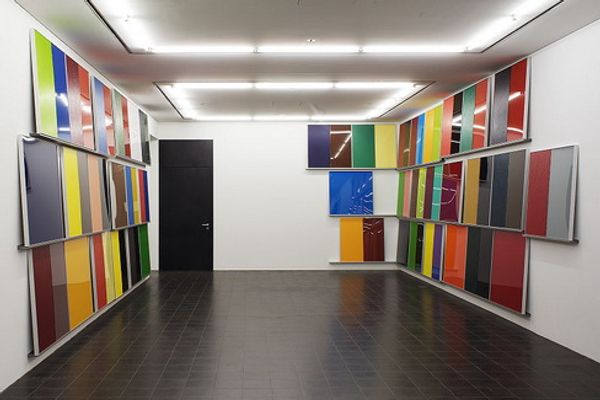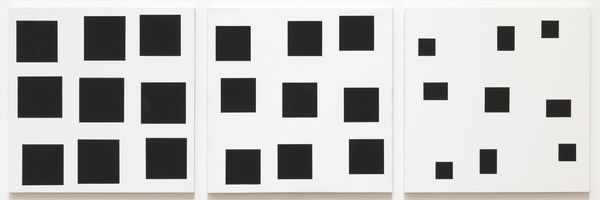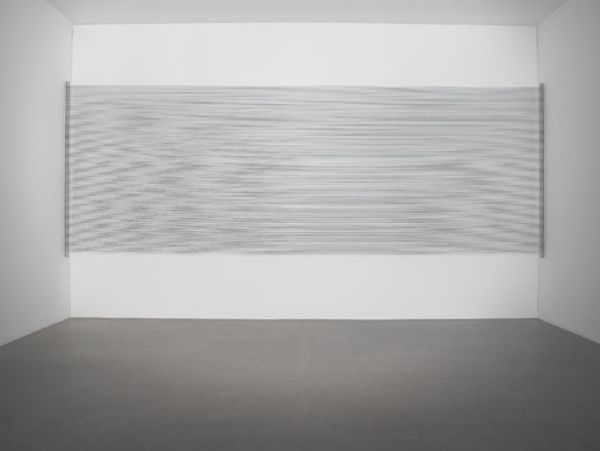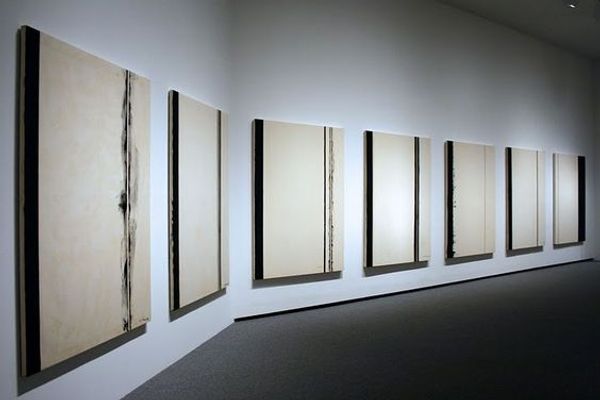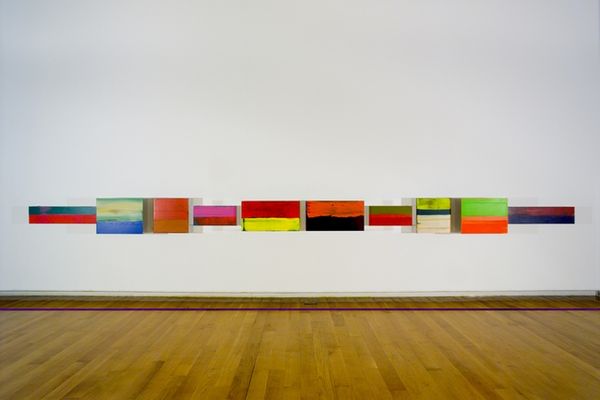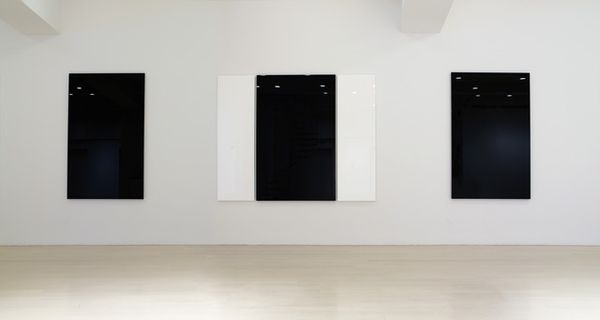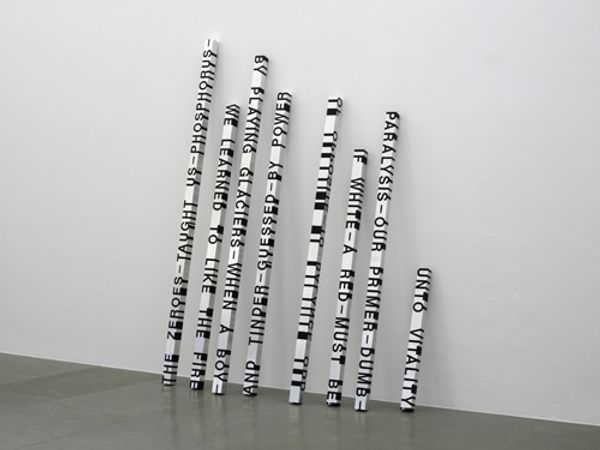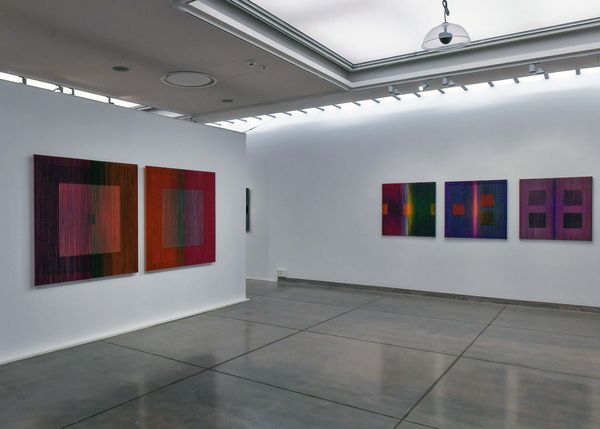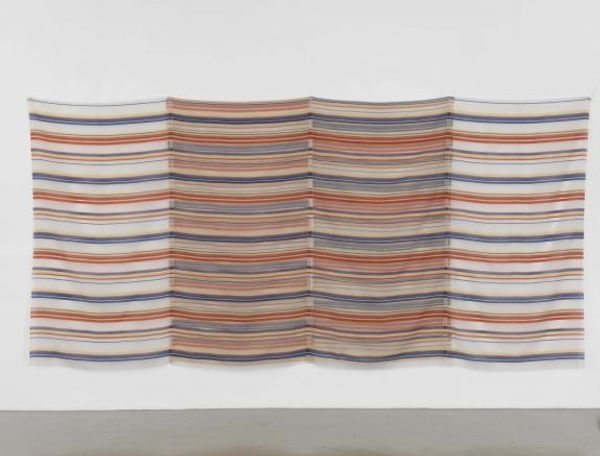
mixed-media, serial-art, installation-art
#
abstract line
#
abstract expressionism
#
mixed-media
#
minimalism
#
serial-art
#
abstract form
#
minimal pattern
#
geometric
#
white focal point
#
geometric-abstraction
#
installation-art
#
line
#
geometric form
#
hard-edge-painting
Copyright: Wade Guyton,Fair Use
Curator: Before us is Wade Guyton's "Untitled," a mixed-media installation from 2008. It's a series of canvases, each featuring bold, black stripes on a white ground, arranged in a linear sequence along the wall. Editor: The immediate impression is one of starkness and controlled chaos. The receding perspective, the rigorous lines... it evokes a feeling of bureaucratic alienation, doesn't it? Like a visual barcode representing an increasingly digitized and surveilled society? Curator: An interesting read. I'm drawn to the deliberate use of repetition and variation. Observe how the black bands shift subtly from panel to panel. There's a calculated rhythm, a structural integrity achieved through these minimalist forms. Editor: But minimalism itself has a history. Consider the cultural context: Minimalism emerged in the 1960s as a reaction to Abstract Expressionism's perceived emotional excess. Doesn't this lineage of artistic rejection—expressed via Guyton’s serial imagery—reflect the sociopolitical discontent following major global upheavals? Curator: Perhaps, but the impact is largely aesthetic. It forces a contemplation of form, space, and the interplay between positive and negative areas. Semiotically speaking, the very lack of representational imagery opens a realm for personal interpretation guided by pure visual elements. Editor: The ‘lack’ is exactly the point, isn't it? The piece refuses traditional art historical narratives. I read this refusal not as aesthetic indifference but as a conscious political act—a rejection of commodified art within late-capitalist structures. Look closely, these bars act like the bars on a cell... who is imprisoned? Us, the viewers? The artist? Curator: Such a perspective relies on a deconstructionist view, undermining the potential for more fundamental interpretations about balance, geometry and form. It's also important to understand how it plays with materiality in contemporary installation practice, pushing the boundaries of art as object. Editor: But even materiality carries a cultural weight. I find myself pondering on what it is like to live in a black and white world of limited and politically fueled perspectives where a select view dominates our vision and our very lives. Curator: Regardless, this highlights the power of simple forms to provoke complex responses. Editor: Absolutely, it underlines the role of art to start necessary conversations.
Comments
No comments
Be the first to comment and join the conversation on the ultimate creative platform.
